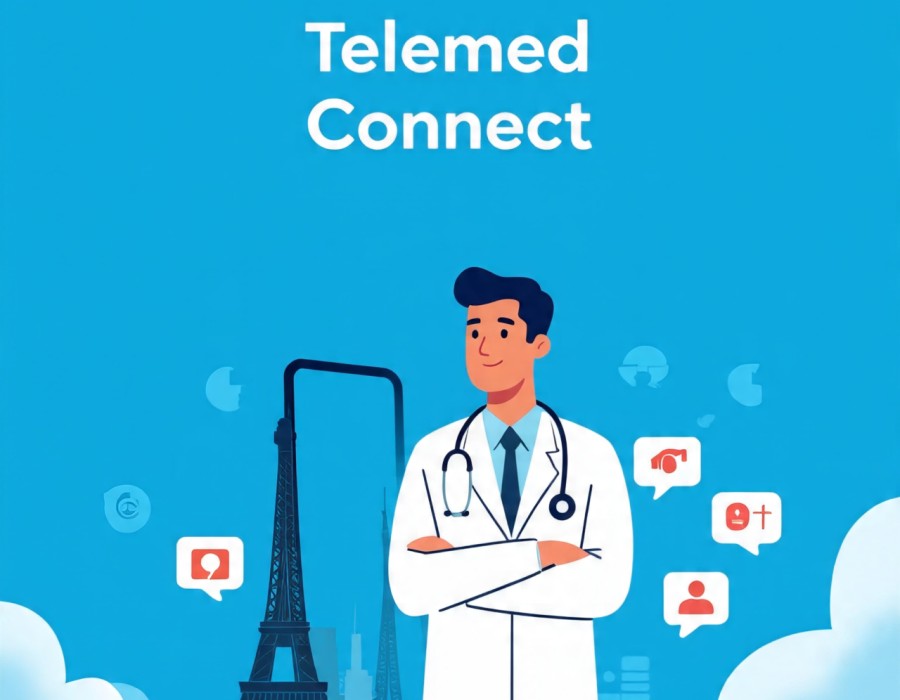Healthcare has always been about human connection — understanding patients, preventing illness, and improving lives. But the way we deliver care is changing faster than ever. The rise of AI, IoT, and predictive analytics has pushed healthcare app development into a new era — one where technology doesn’t just support care, it drives it.
Let’s unpack what that means and how it’s reshaping the future of digital health.
1. The New Face of Healthcare Apps
Healthcare apps have moved beyond appointment bookings and health tips. They’ve evolved into intelligent systems that can monitor patients in real time, detect anomalies before they become critical, and even assist doctors with decision-making.
Modern healthcare app development focuses on three things: personalization, precision, and prevention.
- Personalization means apps adapt to each patient’s needs and habits.
- Precision ensures data accuracy through connected devices and sensors.
- Prevention leverages AI insights to predict risks before they occur.
Whether it’s remote patient monitoring, fitness tracking, or teleconsultations — healthcare apps are becoming the digital backbone of modern medicine.
2. How AI Is Transforming Healthcare App Development
Here’s the thing — AI isn’t just a buzzword anymore. It’s quietly revolutionizing how healthcare apps work behind the scenes.
AI algorithms can now analyze patient data to detect health patterns faster than humans. They power chatbots that offer 24/7 virtual support, automate diagnosis suggestions, and even identify potential medical errors.
A few ways AI-driven healthcare app development is making a difference:
- Predictive Diagnostics: Apps that spot early signs of diabetes or cardiac risks.
- Virtual Health Assistants: AI bots guiding users through medication schedules or post-surgery recovery.
- Image Recognition: AI models detecting tumors or fractures from scans with near-perfect accuracy.
This shift is giving patients faster answers and doctors more reliable data. And for healthcare startups, it’s unlocking endless innovation potential.
3. IoT: The Bridge Between Patients and Providers
If AI is the brain, IoT is the nervous system of connected healthcare. Smart sensors, wearable devices, and connected hospital systems form the core of IoT-based healthcare app development.
IoT enables real-time tracking of patient vitals — heart rate, oxygen levels, sleep patterns — and transmits this data securely to physicians or care teams.
Imagine a custom healthcare app that alerts a doctor when a patient’s heart rate spikes or when their glucose level drops dangerously low. That’s not science fiction — it’s already happening.
IoT-powered apps are improving chronic disease management, post-operative monitoring, and elderly care. They’re reducing hospital readmissions and helping healthcare providers deliver care beyond physical walls.
4. Predictive Care: From Treatment to Prevention
The most exciting frontier in healthcare app development is predictive care — using data to act before illness strikes.
With AI and IoT feeding real-time insights, healthcare apps can now predict health risks based on user data, lifestyle patterns, and medical history.
For instance:
- A predictive care app might flag early signs of heart disease.
- A mental health app could detect emotional decline from speech or typing patterns.
- A maternal health app could forecast pregnancy-related complications before symptoms appear.
This proactive model of healthcare turns technology into a life-saving ally — giving doctors and patients time to respond early.
5. Security and Compliance: Building Trust in Digital Health
When it comes to healthcare apps, innovation is only half the story. The other half is trust.
Healthcare app developers must prioritize data protection through HIPAA, GDPR, and other compliance standards. Encryption, secure APIs, and blockchain-based record storage are becoming standard practices in modern healthcare app development services.
Because when users share health data, they expect privacy and reliability — not just features.
Building secure systems doesn’t just meet regulations; it builds loyalty. A patient who trusts your app will stay with your ecosystem.
6. Why Businesses Are Investing in Healthcare App Development
For healthcare providers, startups, and even insurance firms, digital transformation isn’t optional anymore — it’s survival.
The market for healthcare app development is booming because:
- Patients want on-demand access to care.
- Hospitals want efficient data-driven systems.
- Insurers want cost-effective, preventative solutions.
From telemedicine platforms and fitness apps to AI-powered diagnostics and wearable integrations, businesses are realizing that apps aren’t just tools — they’re healthcare delivery systems.
Choosing the right healthcare app development company means choosing innovation, scalability, and compliance all in one place.
7. The Road Ahead: Connected, Predictive, and Personalized
The next chapter of healthcare isn’t written in hospitals — it’s coded in software.
As 5G and edge computing become mainstream, healthcare apps will process and transmit medical data in real time, with near-zero latency.
AR and VR will assist doctors during surgeries. AI will personalize treatment plans at the molecular level. IoT will turn homes into health-monitoring hubs.
In short, the future of healthcare app development is not about replacing doctors — it’s about amplifying them. It’s about using technology to make healthcare faster, smarter, and more human.
Final Thoughts
Healthcare is changing — and apps are leading that change. The blend of AI, IoT, and predictive care is creating a world where health issues can be prevented, not just treated.
For companies and providers, now is the time to innovate. Partnering with a skilled healthcare app development company can help turn visionary ideas into intelligent, compliant, and life-changing digital health solutions.
Because the future of healthcare isn’t coming — it’s already here, and it’s powered by code.





Comments